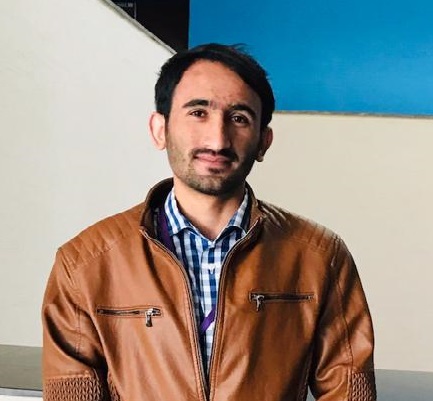Ejaz Ullah is one of the young workers who come to Karachi from the far-flung mountainous region of the country, Chitral Khyber Pakhtunkhwa. He has been working, first as a dishwasher in a small hotel and then as a chips maker, street food, for the last five years. Like other fellows, Ejaz and his elder brother are living in a small rented room attached with working space. It was around 9:30 pm when I entered his small semicircle living room. “Saleem Bhai, a kura paida hov”, Saleem brother, how did you manage to appear? said Ejaz. After introductory discussion, “Let me start from the beginning of my journey”, he said with a soft and low voice.
Ejaz has had a very strong desire to have a great life in a shining city. He used to sit in the free time and tried to feel how it felt to enjoy the wonderful facilities of urban space: pocket full of money, freedom to do whatever you want, and have access to all the basic facilities including the fulfillment of emotional desire and aesthetic pleasures. Once he entered the mega-city, he became aware that life is something different like a child experiencing intense and disturbing dreams right before wake up. “Now I realized that I was wrong because it was my subaltern position that had made me a victim of illusion”, he said.
Migration of villagers, especially those of age 17-23 years, toward cities is increasing with an exponential rate. The best example of this phenomenon would be the turnout of male voters in the last year’s election in a small village located at the verge of Pak-Afghan border (Oweer Arkari Chitral, Khyberpakhtun khwa). In this polling station, only 56 percent male casted their votes while 37 percent were out of the village given the number of registered voters. The same result also showed that the number of young voters were less despite being major part of the particular population. “Ma brar Karachi hanasa espa bap dure ghare shr. Lou ha u daho sar zeyada novjuvanan asune”, my brother now Karachi is our mother’s home, no more stranger. See, here you will find more young men than those in the villages, said Ejaz.
This mass mobilization led to the emergence of super congested colonies located along the busy roads and near waste collection zones. Mr. Ejaz, (while pointing toward the nearby slums) said, “This circumscribed space is like a garbage heap where you can find nothing except the useless discarded matter. The presence of these stray dogs signifies the social value of this particular piece of land”. His words reminded me of Faiz Ahmad Faiz:
Yeh galiyon ke aawaaraa bekaar kutte
Ke bakshaa gayaa jinko zauq¬e¬gadaai,
Zamaane ki phatkaar sarmaayaa unkaa
Jahaan bhar ki dhatkaar unki kamaai
On every street, these vagabond, good ¬for ¬nothing dogs,
on whom is bequeathed the appetite for beggary,
amass the slurs of their age as capital
and each rebuff from their world as wage.
This era of progress and development treat the modern man with a sort of dilemma that is hard to describe with the degree of encapsulating accuracy. Most of the poor who migrate to major metropolises come mostly from small places, means from those villages which connect with nature that allows them to have freedom and liberty. The terms ‘freedom’ and ‘liberty’, in this context, seem very similar to that of anarchist sense. For instance, the presence of the State is not as intrusive in the village as it is in the metropolis. The overall organized sphere of a village including the structure of houses, roads, communal places etc. all promote an utmost sense of human freedom and integrity. He further mentioned that once people migrate to urbanized places, they immediately feel the surrounding restrictions that limit, sometime via coercion, their freedom and movement. With one hand pointing toward front building, he said: “you know, this apartment is built in such a way that it automatically limits one’s movement, thereby confine that person within the premises of certain boundaries”.
Youngsters in rural areas involve in many social gatherings which enable them to have practical experiences of social life. From an informal gathering for a traditional ritual celebration to an ending chatting with friends, every social act provides a sense of connectedness and mutual understanding. On the other hand, once the same youth enters the sphere of metropolis then everything changes drastically: the absence of previous sociability, no free space for recreational activities including sport and, above all, diverse but complicated societal space. Likewise, young men in rural areas are more attached to their families under a joint family system. On the other hand, in the city, they live as a small unit but without any adherence to their families. It is precisely this reason that the relationship between parents and sons becomes different from what it would be if the young men live under the joint family system. This also leads to the individualization of attitudes and values thus changes the social structure of traditional families. It is precisely this reason that the joint family system is perishing while the modern small consumer family setup is dominating the social structure of the villages.
While sharing his future plan, he said: “I am very much concerned about the career of my brother. You know he is a very hardworking and smart boy. I am thinking of admitting him in a private institution as the quality of education matters a lot. But, given my income and family expenses, it seems impossible”. Like Ejaz, most of the migrated friends are concern about the availability of living space with having basic facilities i.e. water, electricity, gas and affordable rent. “More than half of the meager income goes without being aware of it. Gas bill, electricity bill, rent, and other related expenses make one’s pocket half empty. Also, the owner will kick me out once she gets any complaints regarding rents or anything related to payments”, said Ejaz.
Once again, he reiterated the same point: “If you’re a man and belongs to a poor rural family then forget about God and any other source of material justice. No one is going to save you from the terrible labor work, especially at the young age”. It is true that urbanization helps the young labors of rural areas to fulfill the immediate needs of their families. Unfortunately, for the workers, the given help comes at the cost of huge loses deprivation of basic facilities, insecure and unhappy life, mental and physical problems, etc. Although our discussion ended here, the words of my comrade put me in a situation where I am not more than an old statue. It has been two months since the particular meet up, the same question, which Lenin used to ask, is constantly rotating in my mind: What Is To Be Done?

Listening to my Comrade
SHARE YOUR VIEWS: Agreement with Facebook Comments by Zeal is not mandatory!
